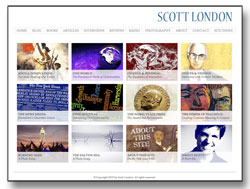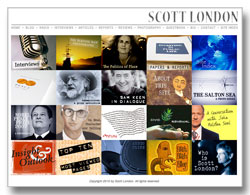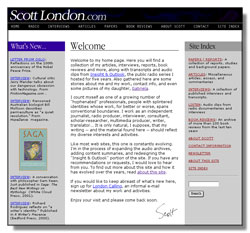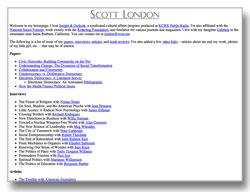About This Site
This is an archive of articles, essays, reports, interviews, criticism and commentary written over a period of some three decades. It's a mix of new and old. Like an untended garden, it could benefit from some weeding and pruning.
The site traces back to the earliest days of the internet. My original website went online in 1995, when the web was still a wide-open frontier. In those early days, much of the information online was posted by computer professionals, academic researchers, community activists, and independent media producers like myself.

2010 - 
2005-2010 - 
2000 -
2005 
1995 - 2000
We saw the Internet as a promising tool for information sharing, public discussion and community-building. In retrospect, few of us realized just how profoundly the medium would change our lives.
My first site was bare-bones by today's standards but included articles, essays and interviews worth sharing. In addition to my writings, I posted program listings from my weekly public radio series and, later, streaming audio files. I was happy to get four or five hundred visitors a week.
The website was overhauled and moved to a new domain in 2000. It got subsequent facelifts in 2005 and 2010 (though some of the early material was left unchanged).
In 2019, the site was split in two. Most of the content was moved to a new domain, scott.london. The part of the original site devoted to photography was left intact at scottlondon.com. It made sense to create two sites — one devoted to journalism and writing, the other to photography — since the content was aimed at different audiences.
If the site looks and feels homemade, that's because it is. I still do much of the coding by hand using BBEdit and Dreamweaver. In this new era of responsive web design, manually coding HTML pages is no longer a viable strategy and I'll need to make some changes going forward.
The site continues to generate a lot of traffic. It averages over 100,000 unique visitors and about 1 million page-views per month. Much of the traffic can be attributed to incoming links from countless sites on the web. Wikipedia, for example, references my work in many of its articles.
I'd love to hear from you. I'm especially grateful for constructive feedback — what works, what doesn't, dead links, etc. Your comments are always appreciated.
Thank you for visiting.
— Scott
